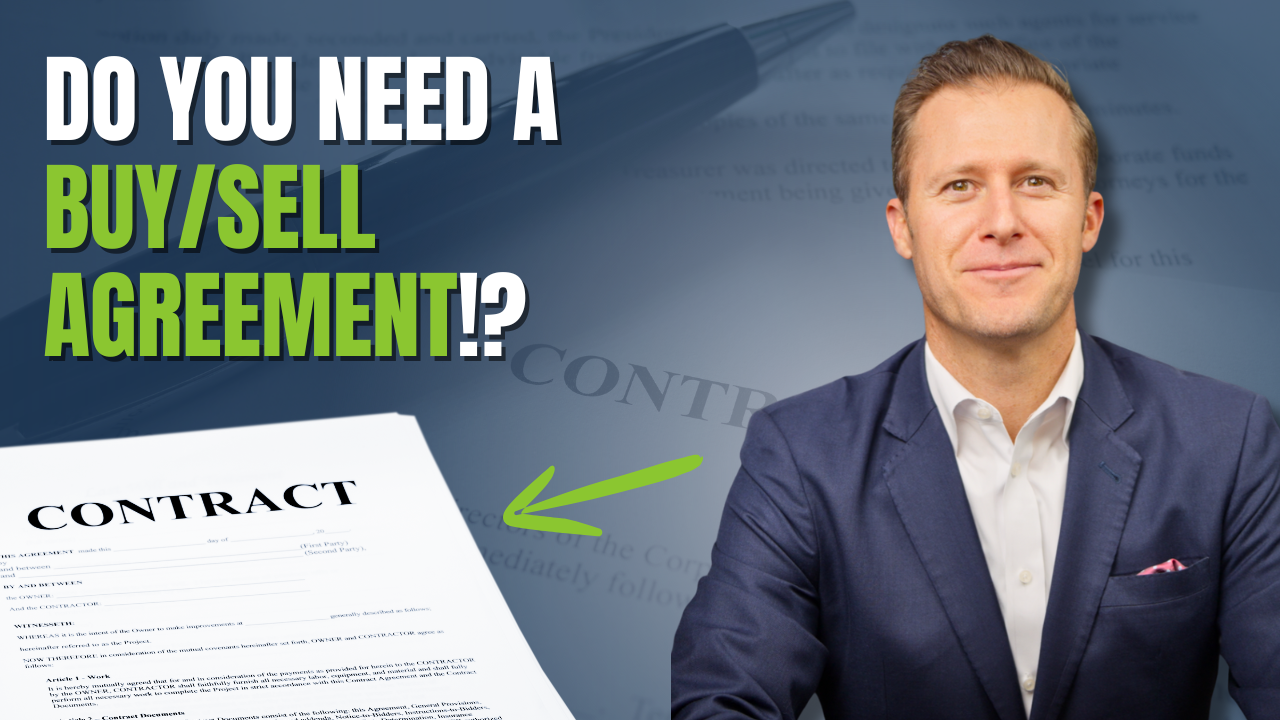Transcription:
Imagine this, you spent years building a family business, putting in blood, sweat, and tears to create something special. Now it’s time to pass it down. But then something unexpected happens. Maybe it’s a sudden illness, a partner retiring, or even a death in the family. And just like that, everything you’ve worked for could be at risk. Hi, I’m Ken Hargreeves, President of WealthGen Advisors, and today I want to talk about how a well-structured buy-sell agreement can protect your business and help secure a future. Now, you might not know this, but according to the North American Family Business Report in 2023, 61% of family-owned businesses don’t have a formal succession plan in place.
That’s more than half of all business owners who are risking everything they’ve built. And that’s where a buy-sell agreement comes in handy. Think of a buy-sell agreement as a safety plan for your business. It’s a legal agreement that tells everyone what will happen if a business partner needs to exit, whether it’s due to death, retirement, or something else. Now here’s why it’s so important. First, it provides a clear exit strategy. You don’t want any surprises when the time comes to leave or to sell your share of the business. A buy-sell agreement sets the rules and makes sure everyone knows what to expect. It also protects business continuity. Now without one, you could face confusion or even chaos if a partner has to leave unexpectedly.
A buy-sell agreement ensures that a business can keep running smoothly no matter what. Another major benefit is that it creates a guaranteed market for your shares when you sell. If one of the business owners needs to sell, the buy-sell agreement ensures that other partners or shareholders are willing and able to buy those shares at a fair price. No scrambling or needing to find a buyer at the last minute. And finally, it prevents unwanted partners or their heirs from coming into the business. If something happens to a partner, you don’t want someone you don’t trust stepping in.
A buy-sell agreement makes sure you can control who becomes part of that company. Now there’s a few key components to a buy-sell agreement. First, you have to have a triggering event. Now these are situations that will activate the buy-sell plan. Some common triggering events are ones you’ve probably already thought of-death, disability, retirement, or divorce.
Next, you need to value the business. There are different ways to do this. There’s a fixed price, there’s a formula, which could be based on company financial performance or other metrics, and then there’s also regular appraisals. Alright, now you know the key parts of the agreement. Now, how do you fund it when a triggering event happens? Well, there’s several options. The first is under installment payments, which is probably one of the most common. Next is under life insurance. This helps create liquidity to buy out a partner’s spouse or a family member. There’s also disability insurance. This might help cover the cost if a partner becomes disabled and can no longer work.
There’s company earnings. You can use company profits to fund a buyout. There’s also bank financing, so you can take out a loan to help cover the buyout too. A lot of these are very, very common. Of course, a buy-sell agreement only works if it’s set up properly. There’s some common mistakes that can cause big problems down the line. Now, here are a few to watch out for. First is outdated valuations. Second, in-house purchases and adequate funding, third, unclear triggers, and finally, ignoring tax implications.
A properly structured buy-sell agreement is like a prenup for your business. You hope you never need it, but if you do, you’ll be grateful it’s there. If you want to learn more about how a buy-sell agreement can protect your business legacy, please reach out to us. We’re here to help to make sure your business stays strong no matter what the future holds. Thanks for watching.





